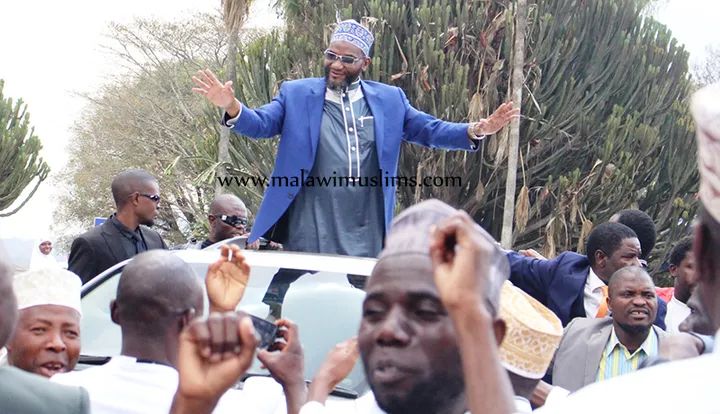The Muslim Association of Malawi (MAM), the Muslims’ mother organization, has designated November 21 as the day when the new leadership will take office.
In an interview with Malawi Muslims Official Website, Board of Trustees Chairperson Sheikh Ali Kennedy confirmed the development.
Sheikh Kennedy stated that, unlike in the past, the association will choose its leaders through a Shura (consultation) process this time. This comes after the MAM’s constitution was amended in 2017 to eliminate the ‘political’ method of selecting leaders, which had resulted in conflict and enmity among the candidates.
“We’ll organize a Shura council with 40 members representing all Muslims throughout Malawi, drawn from all districts who will then pick a national chairman based on the Islamic notion of a good leader,” said Sheikh Ali Kennedy.
According to the Board of Trustees Chairperson, the process will be the same for regional and district leadership.
The executive committee will have a ten-year term, while the board of trustees will have an eleven-year term, Malawi Muslims Official Website can reveal.
The process which has been proposed by the Trustees of the organization to replace the current system is not new. It was once used in 1957 when the organization was established under the name Nyasaland Muslim Association. Five leaders were elected using such a system up until 2004 when a political system of electing leaders was introduced.
The five leaders that were chosen under the Shura process are Sheikh Rajab Abdulkareem from Chiradzulu, Sheikh Lali Lubani from Zomba, Musa Game from Zomba, Hussein Mwarab from Balaka and Alhajj Likonde from Blantyre.
The political system of electing leaders has been criticized by many hence the change to go back to the old system of Shariah in order to suit the Islamic ethos.
Al-Shura or consultation is an instrument for reconstruction and reform, mentioned in the Qur’an and suggested in the practices of the Prophet and his Companions Muhammad (PBUH).
Generally, it is a tool used by Muslim scholars and rulers or caliphs in arriving at a decision or ruling on particular matters or issues relating to the affairs of Muslims.




















